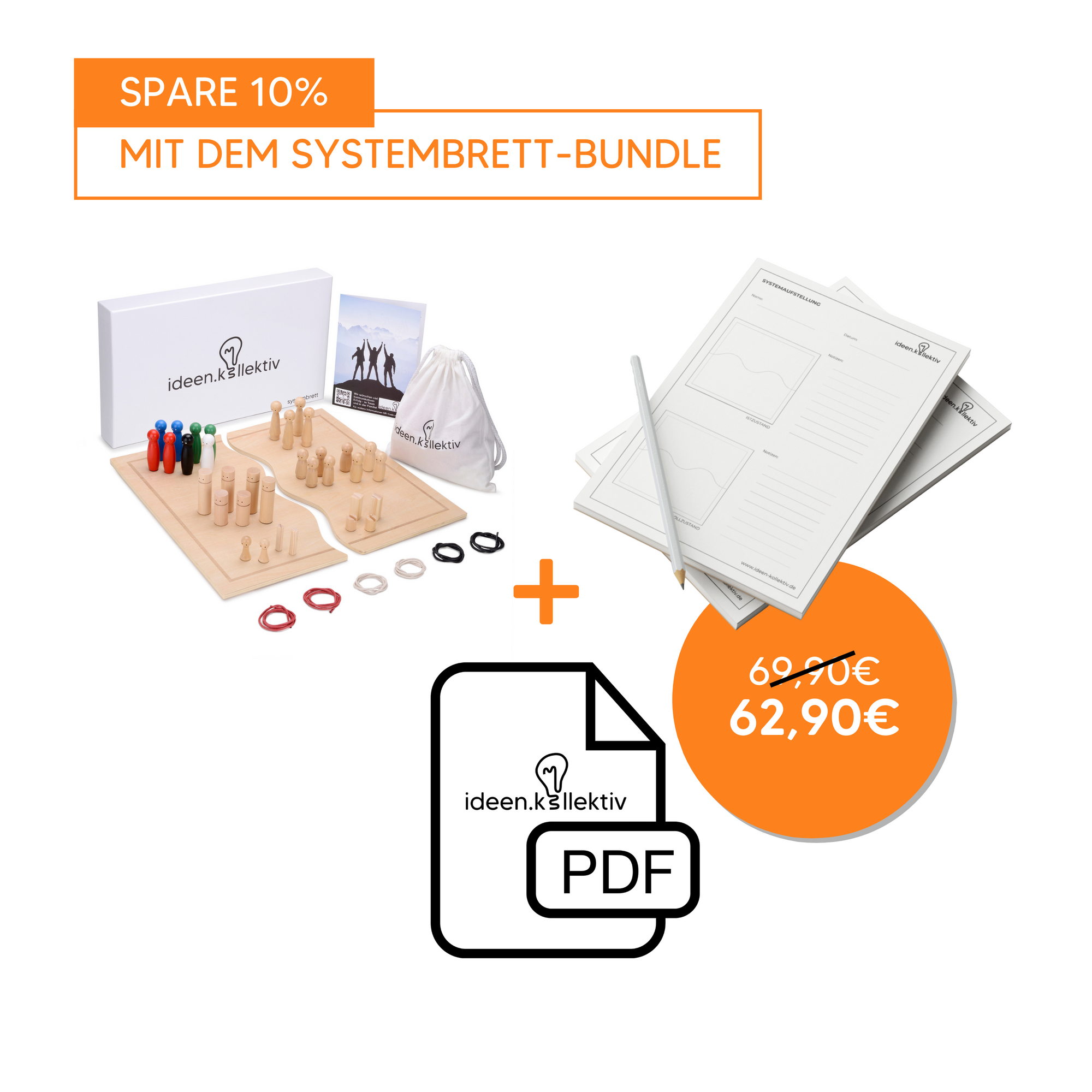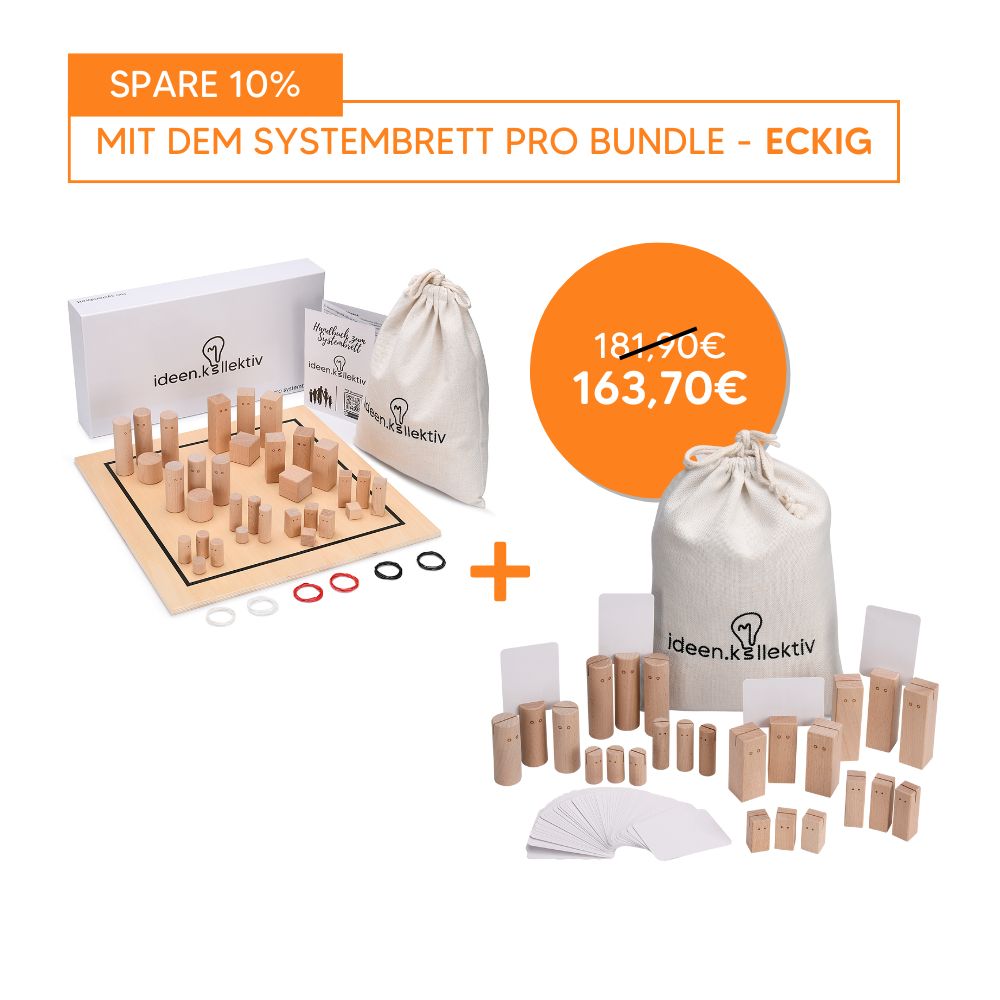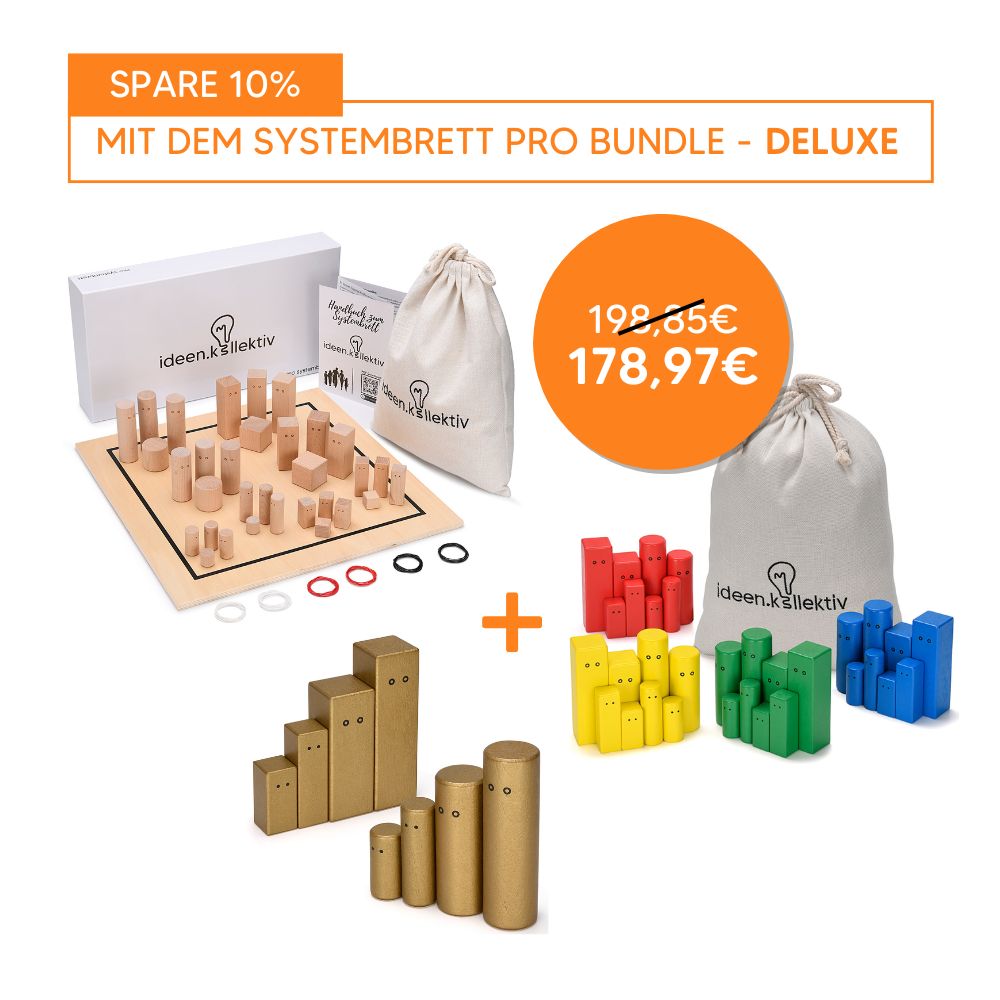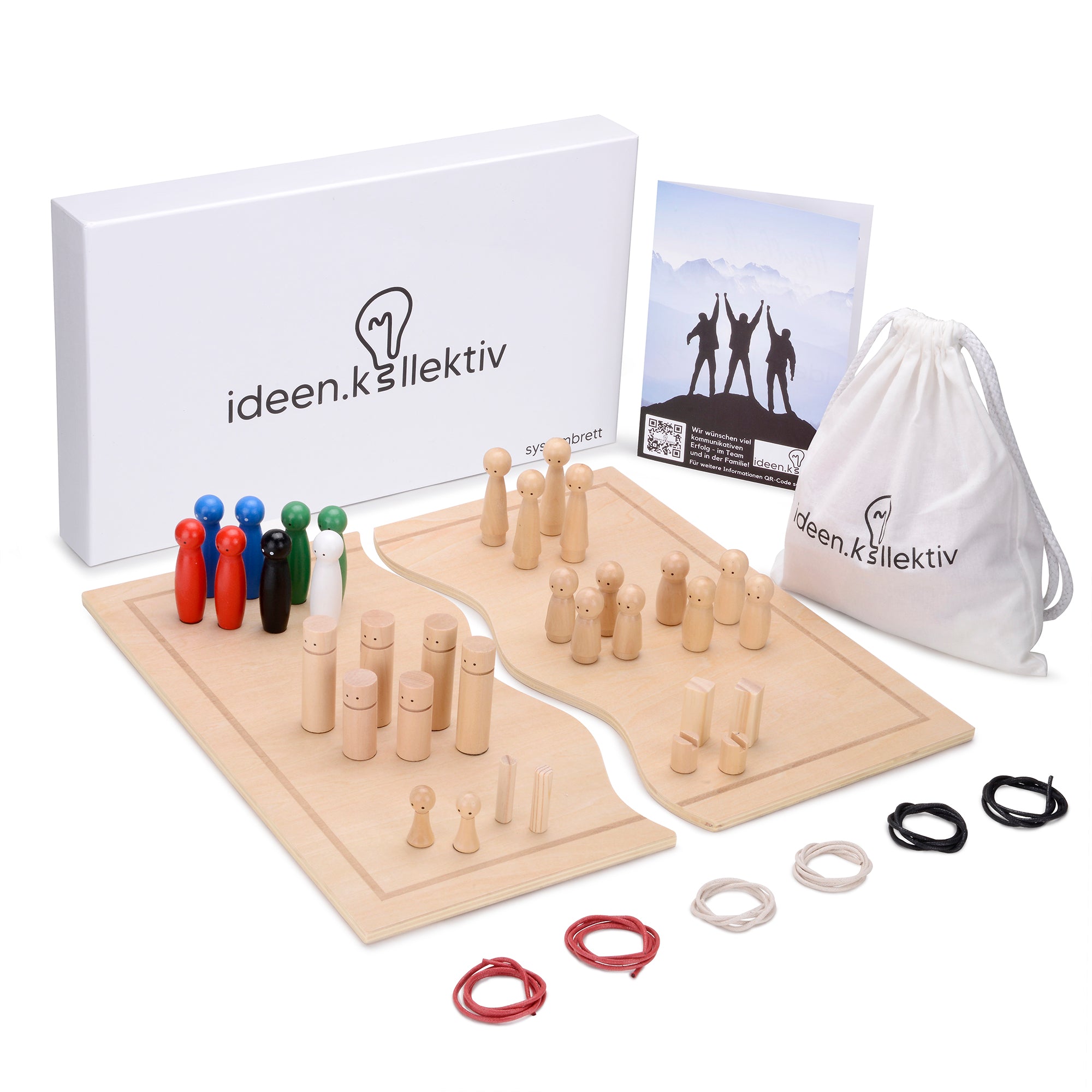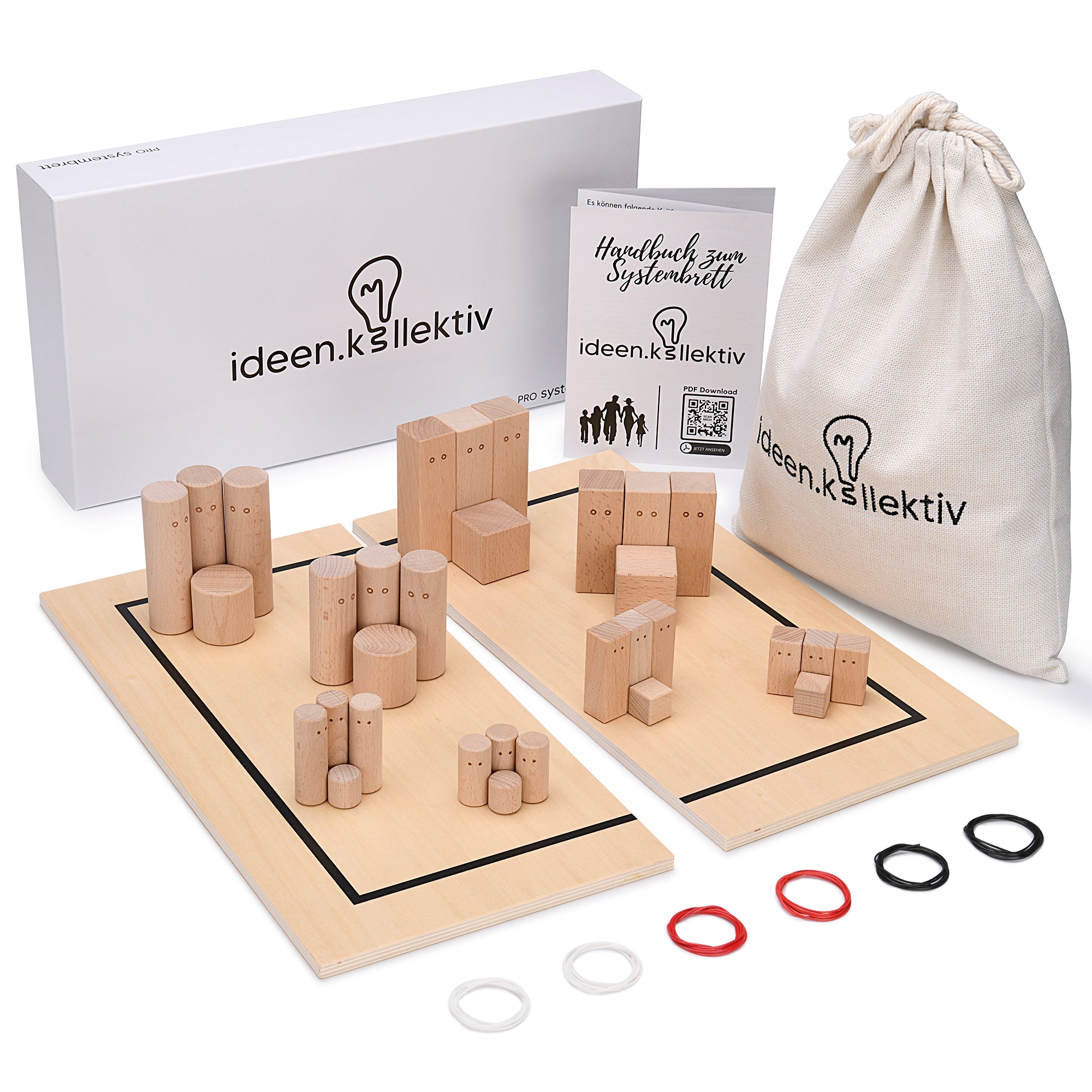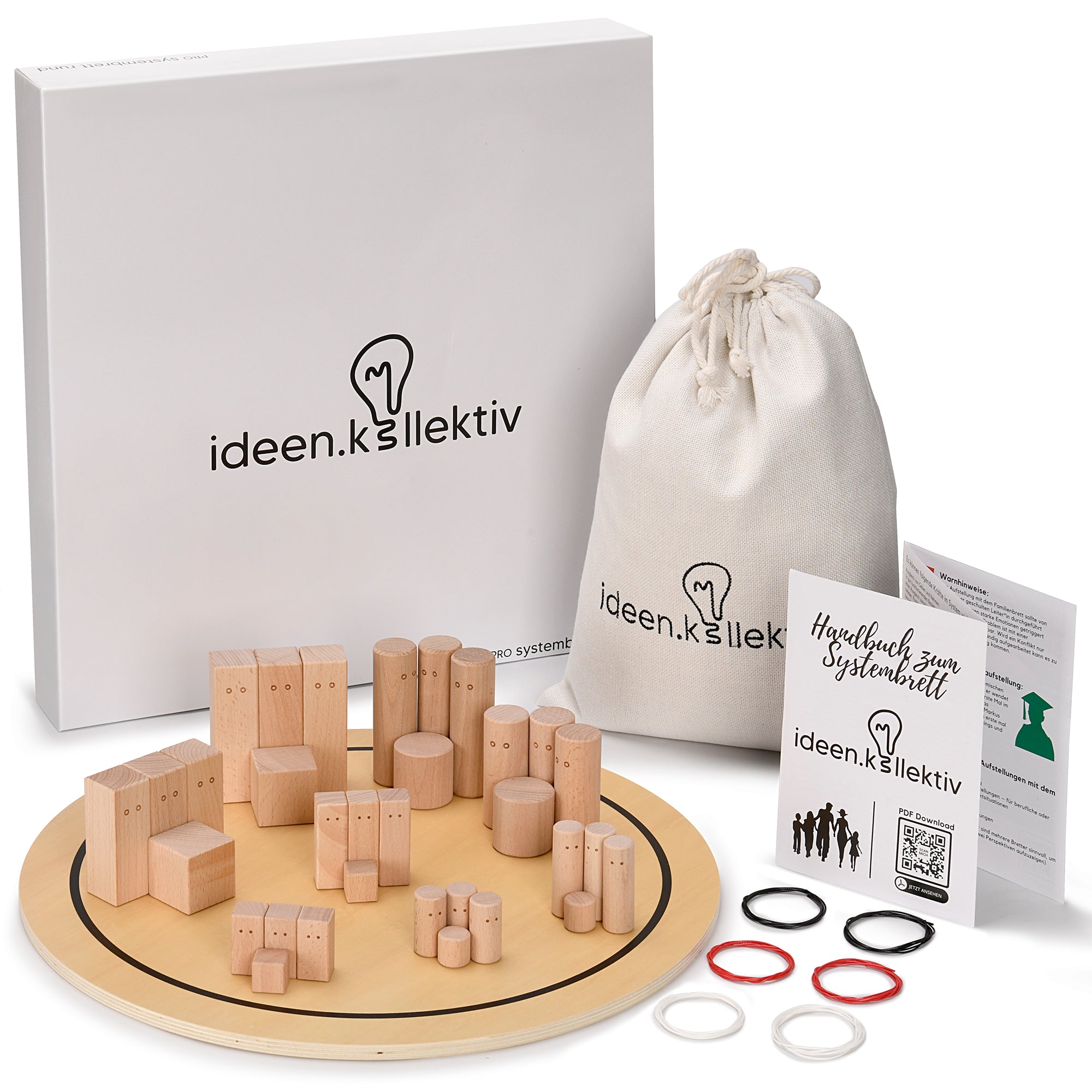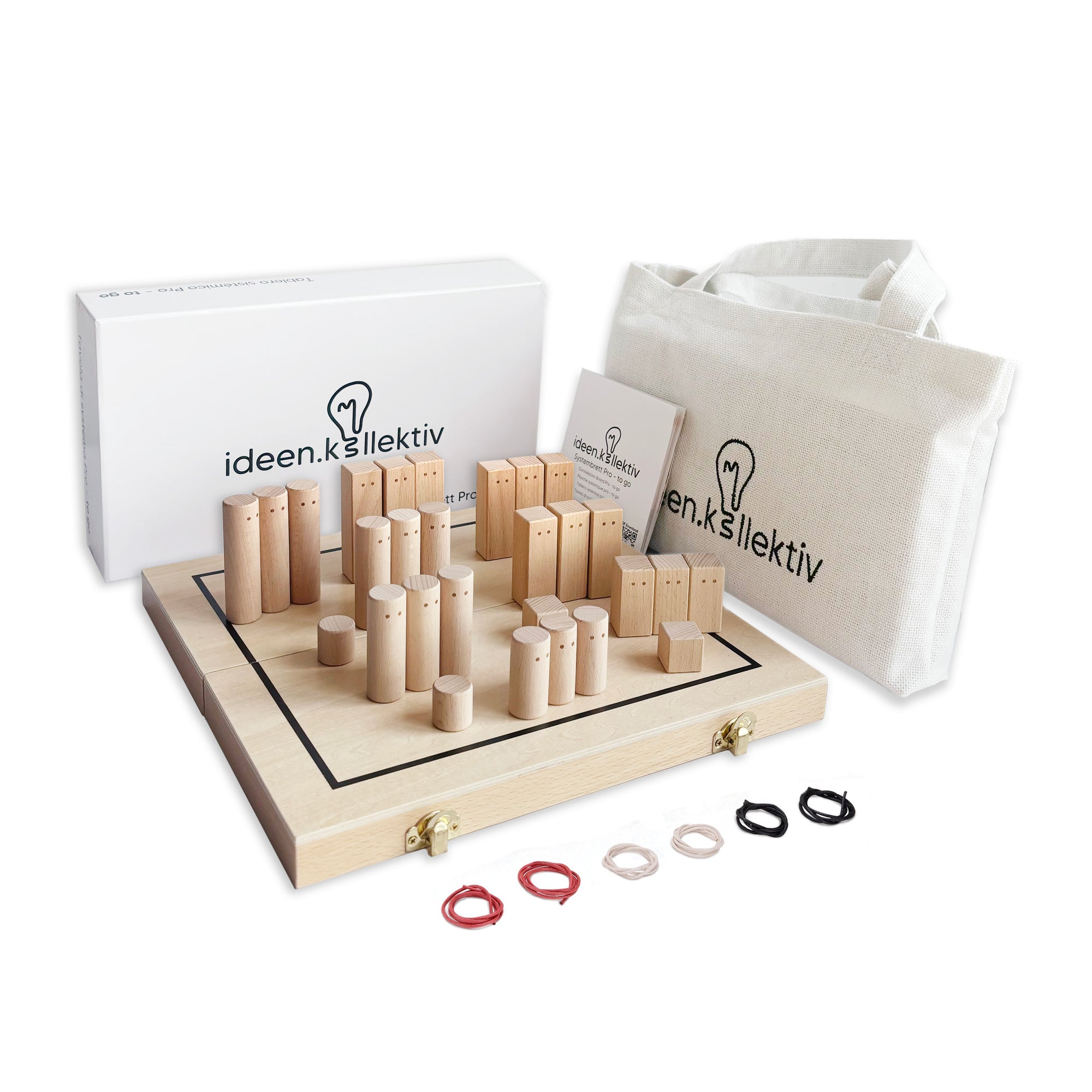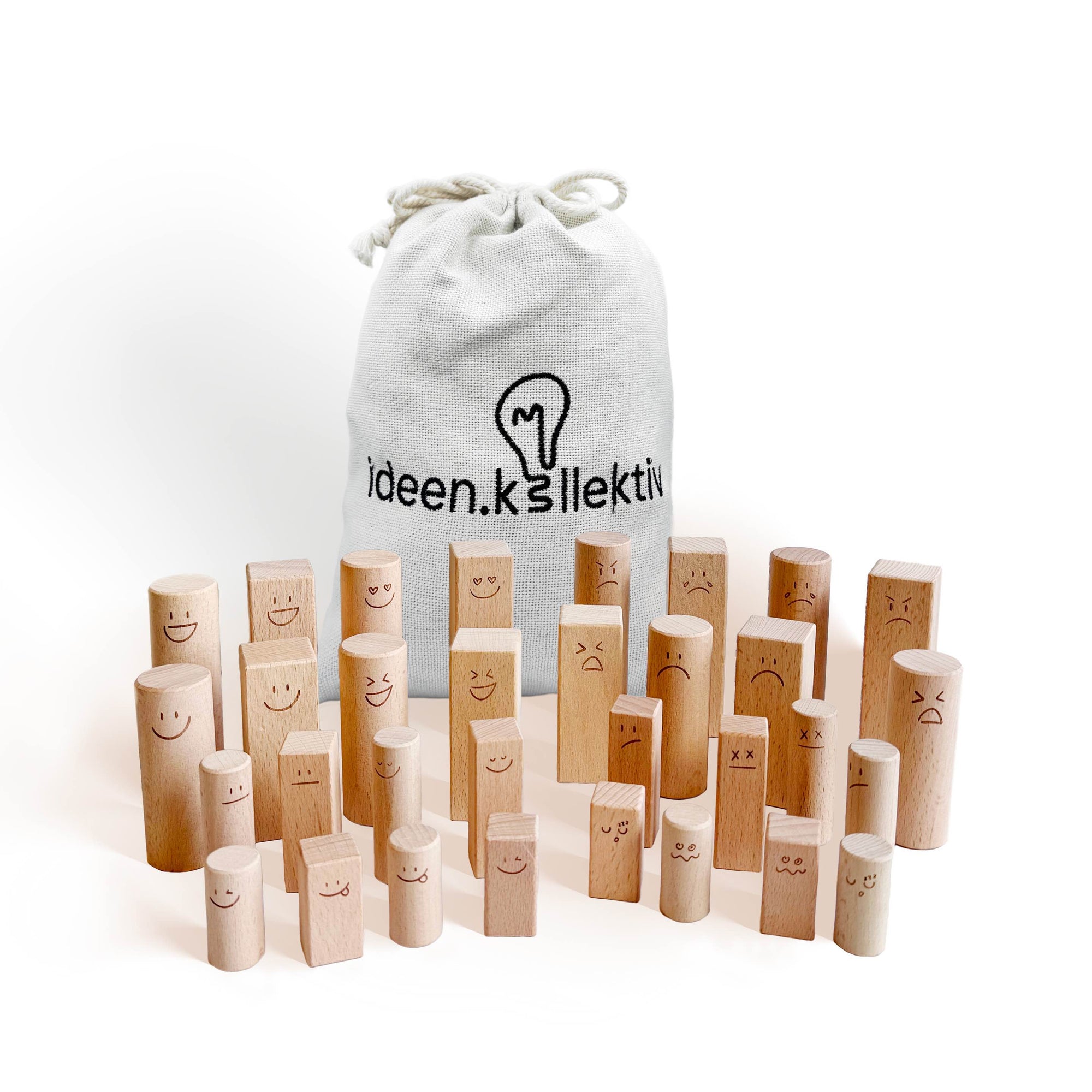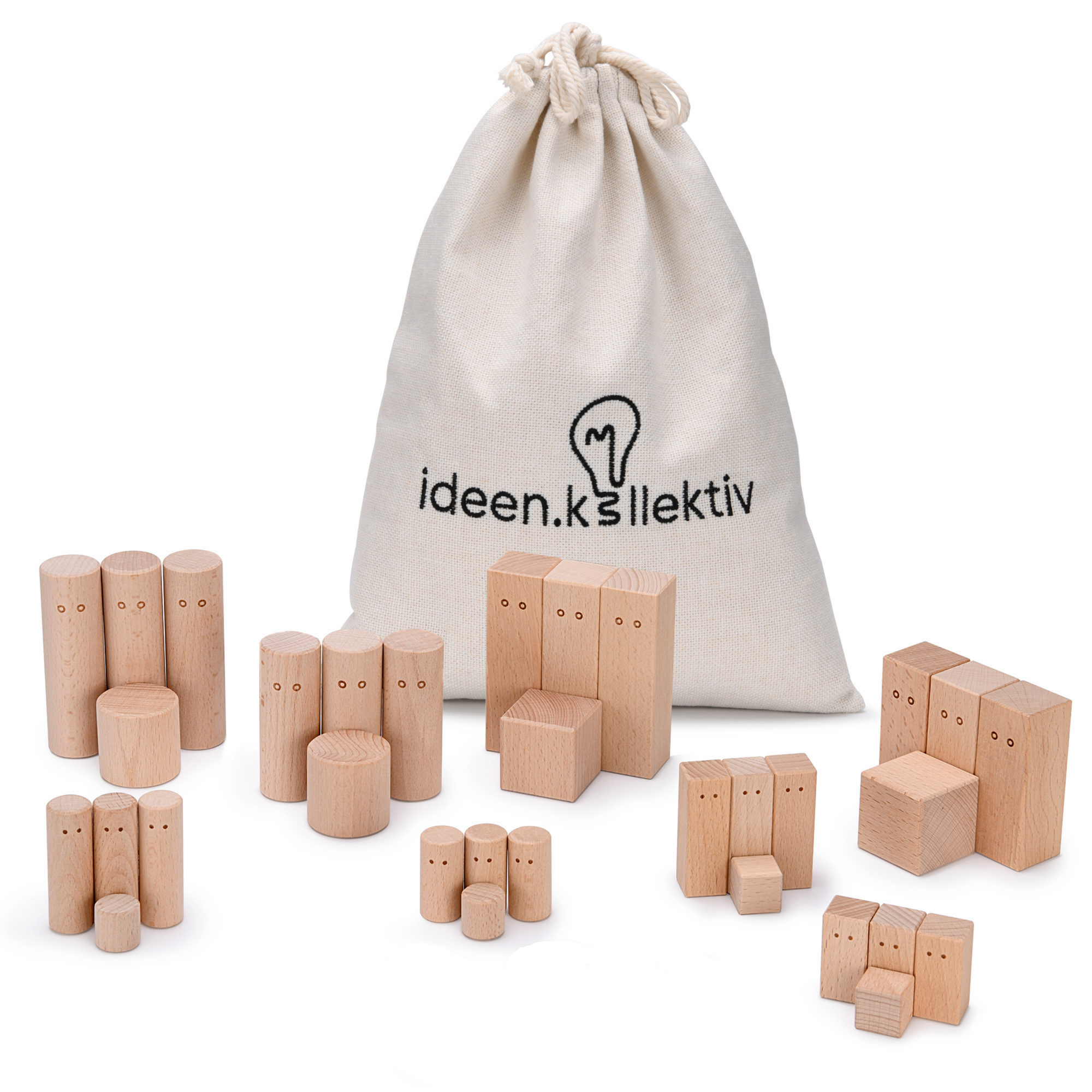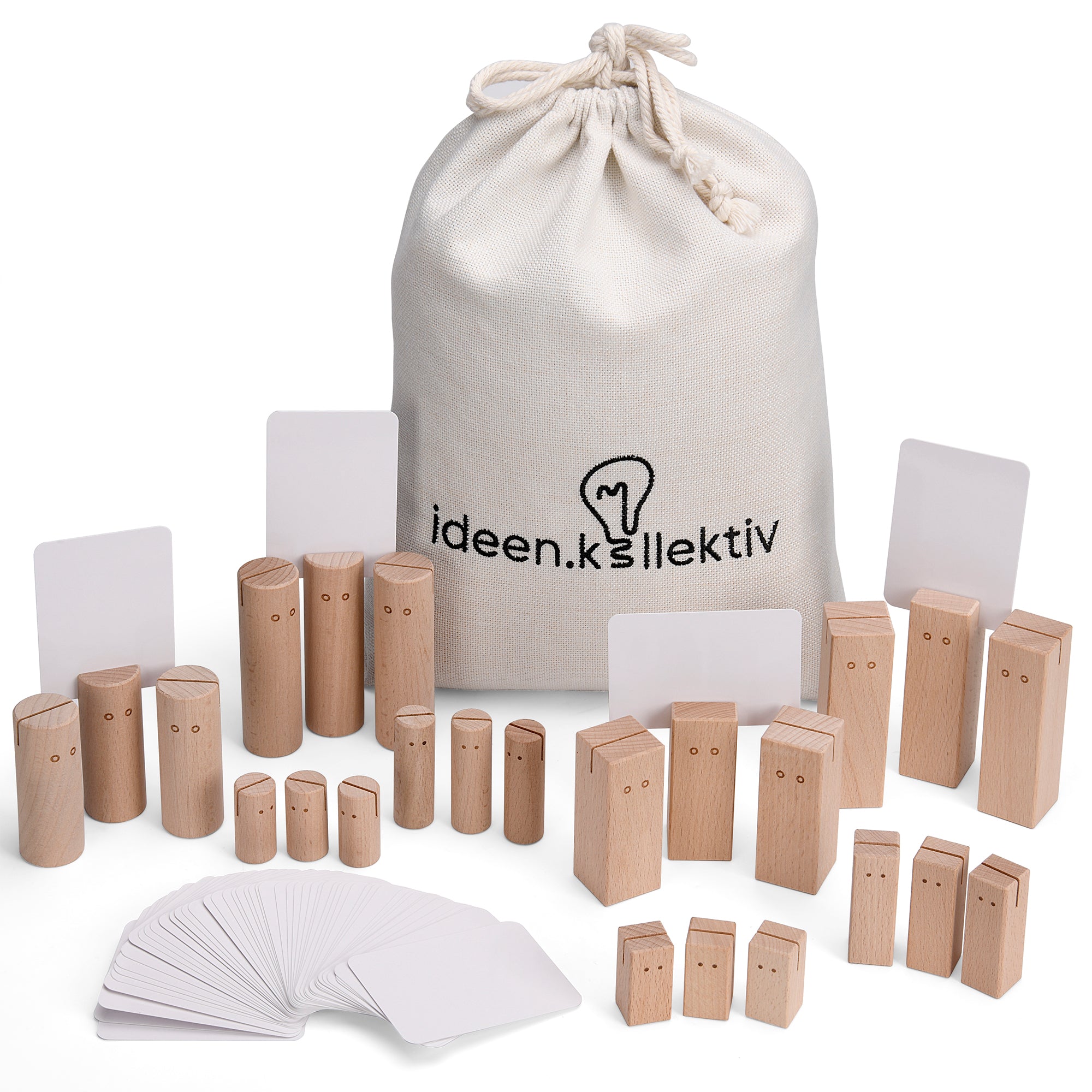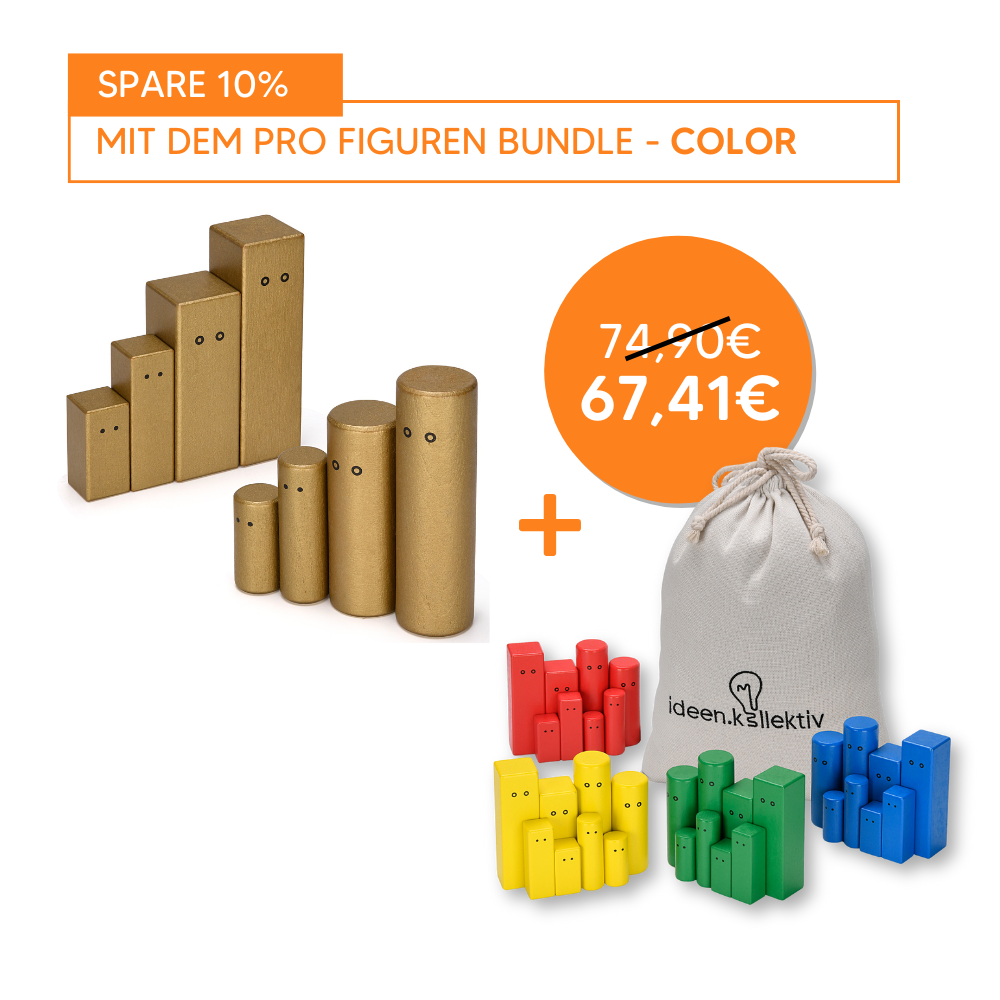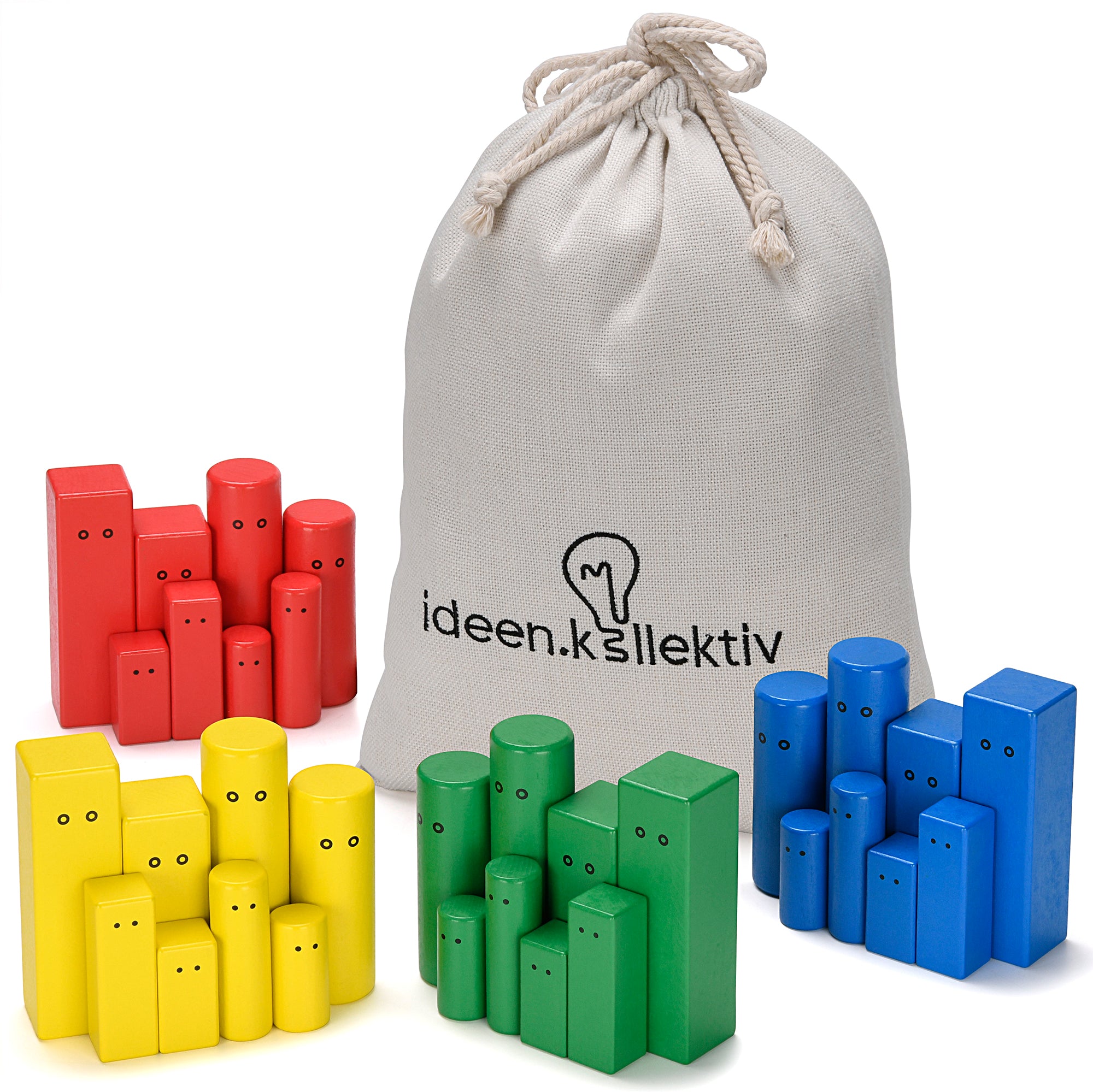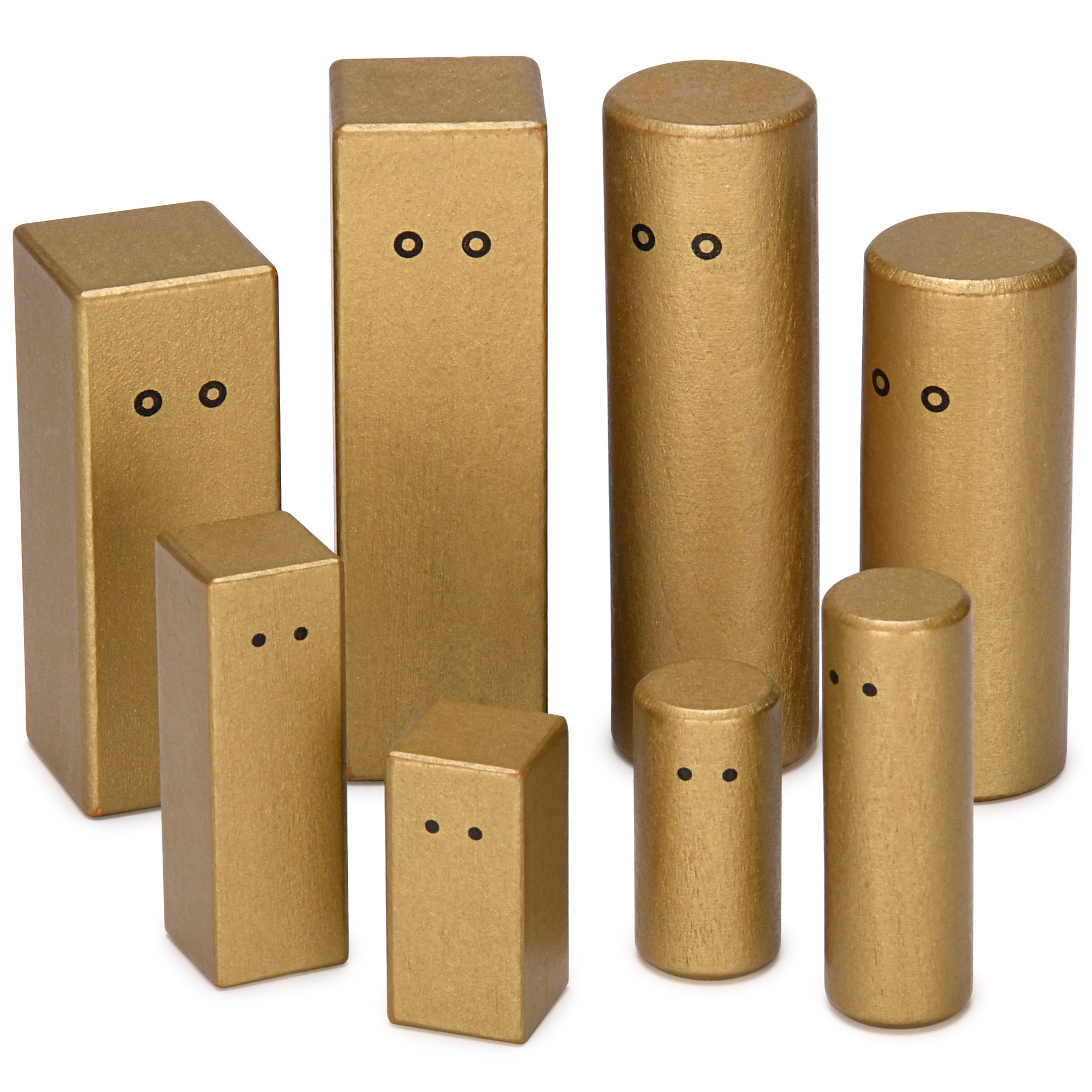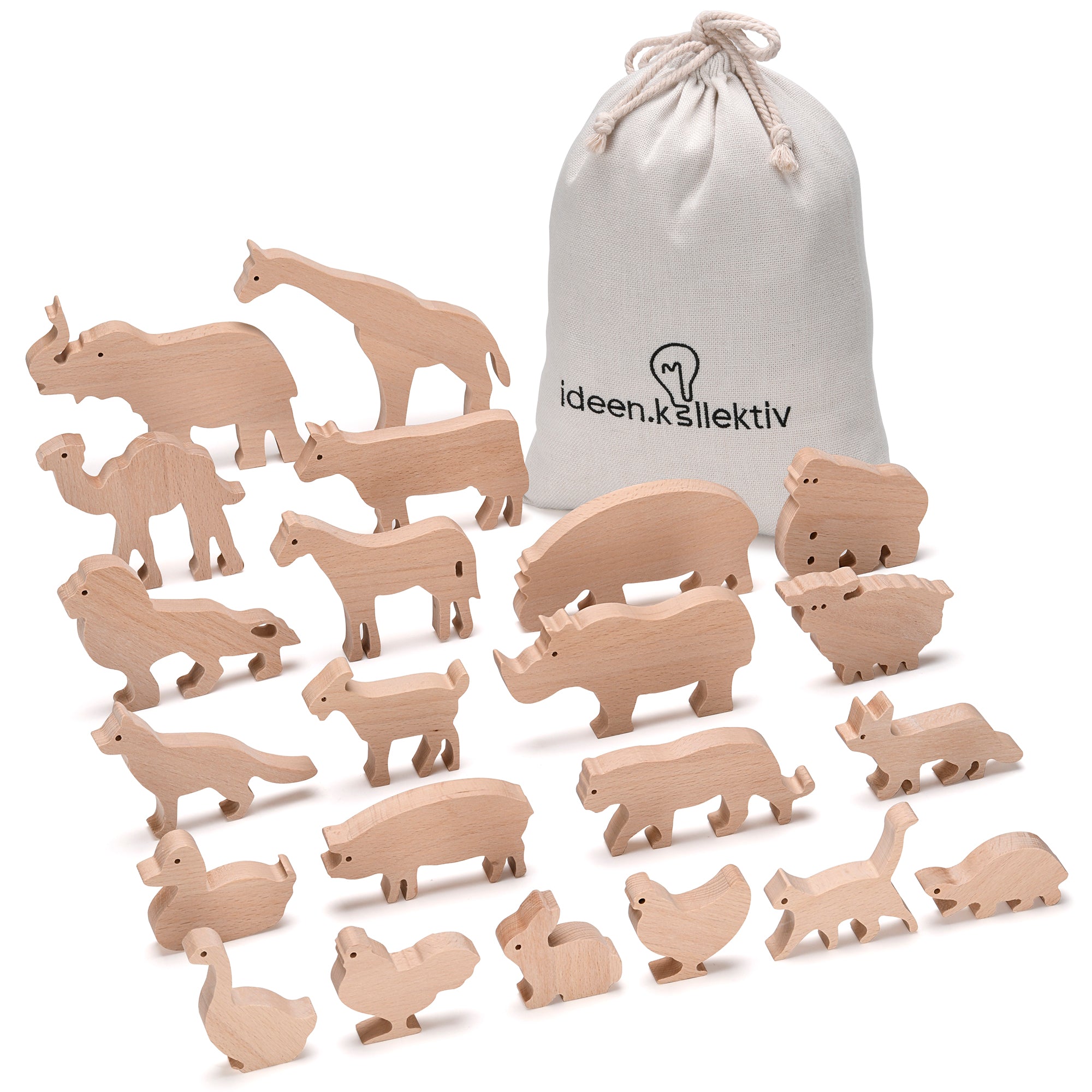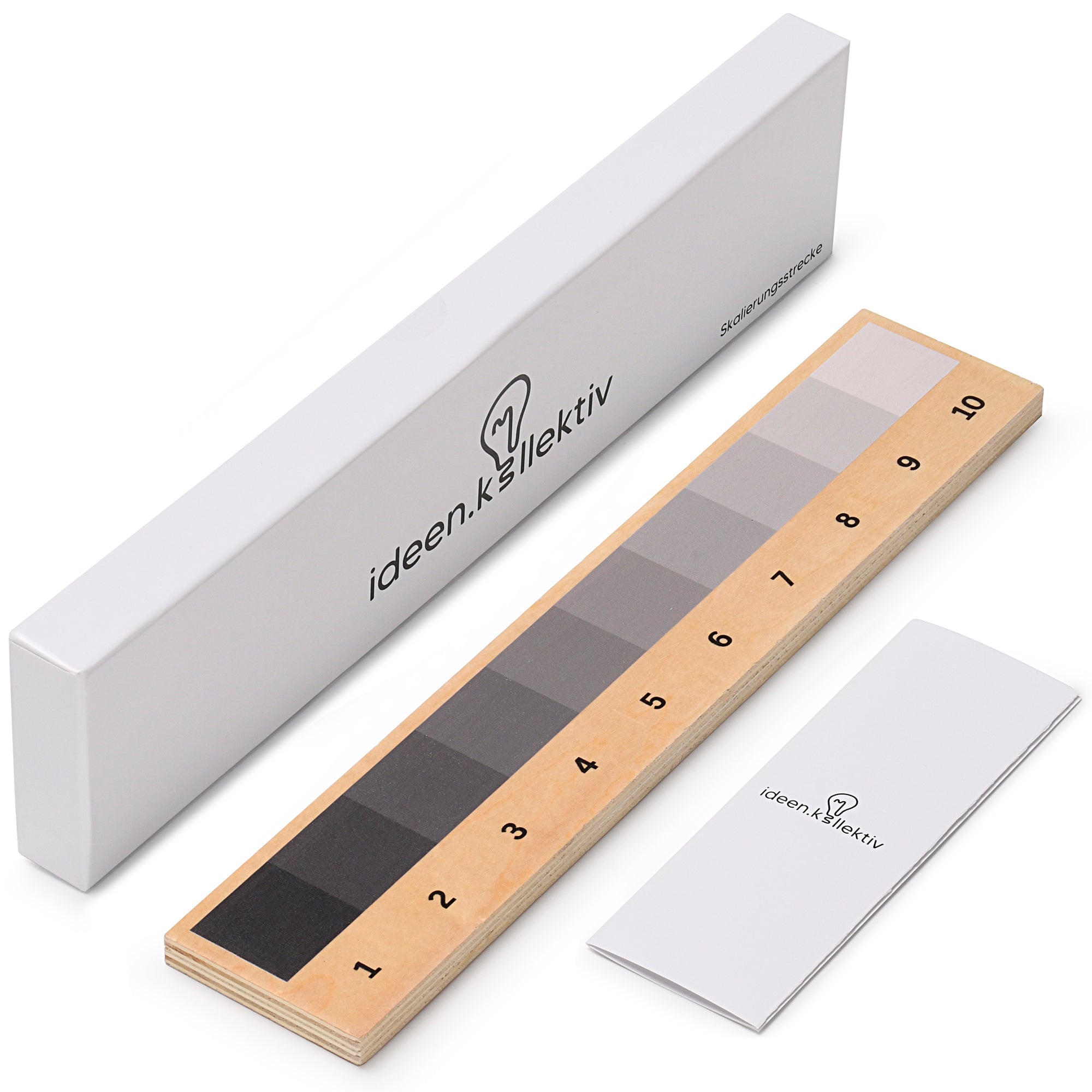Systemic constellations have evolved over the past decades into a powerful tool in coaching, therapy, and personal development. They make it possible to visualize complex webs of relationships and inner dynamics. There isn't just one type of constellation . Rather, various systemic methods have emerged—each with its own strengths, characteristics, and areas of application.
In this article, we introduce the different types of systemic constellations , compare them, and demonstrate when each method might be appropriate. Whether with real people, on a system board, with animal figures, or large wooden figures in the room – the variety of approaches offers a suitable framework for almost every concern.
1. Constellation with real people (live constellation)
This form is considered the most classic and well-known method. It became popular through Bert Hellinger's family constellations , but is used today in many different variations.
Sequence
A constellation with real people usually takes place in a group setting. A person describes their concern, for example, a family problem, a recurring blockage, or a career decision. Then, representatives are selected to represent specific roles (e.g., father, mother, the topic of "success") and positioned in the room.
The representatives report how they feel in their position. They often sense surprisingly precise emotions or bodily sensations without knowing the system in place. Through movements, shifts in perspective, and targeted interventions, a process emerges that reveals new perspectives and possible solutions.
Advantages
- Intense emotional depth and resonance
- Dynamics between people become visible and tangible
- Particularly effective in interpersonal issues
- Group experience can be transformative
Limits
- Requires multiple people to be physically present
- Organizational effort (room, group, management)
- Rather unsuitable for very intimate or shameful topics
2. Positioning on the system board
The system board is a compact, versatile method for visually and spatially depicting complex situations. Instead of using real people, it uses wooden figures on a board.

Sequence
A person describes their issue—such as a workplace conflict or a decision-making dilemma—and represents the relevant elements with figures on the board. The position, orientation, and distance represent relationships, dynamics, and inner states.
Through small changes and symbolic interventions, a process emerges that opens up new perspectives. The person can gain clarity through a change of perspective.
Advantages
- Compact, discreet and easy to use alone or in coaching
- Ideal for analytical and rational people
- Well suited for business topics and decision-making questions
- Fast access to complex contexts
Limits
- Emotional depth limited by lack of interaction with real people
- Less suitable for people who work heavily physically and emotionally
3. Display with animal figures
Animal figures enable a symbolic and intuitive form of constellation. This method is particularly suitable for creative adults or children. 
Sequence
The person selects animals that represent aspects of their system. For example, a lion represents strength, a mouse represents fear. The figures are positioned and charged with meaning. The process can reveal inner images and metaphors.
Advantages
- Very accessible for children or creative thinkers
- High symbolic value – ideal for unconscious themes
- Archetypes can trigger deep inner processes
Limits
- Less structured than other methods
- Symbolism is subjective and needs good accompaniment
- Is sometimes experienced by cognitive people as too playful
4. Arrangement with large figures in the room
This method combines working with figures and spatial experience. Instead of people , large wooden figures are used, which are positioned freely in the space.

Sequence
The person setting up the constellation sets up large wooden figures in the room, feels their effect, and can place or move between the figures. This physical approach opens up new insights, even without a group.
Advantages
- Spatial experience without other people
- Good for individual work with or without a coach
- Combines symbolism and body perception
- Reusable, durable materials
Limits
- Less lively dynamics than with real people
- Emotional resonance develops more slowly
- Needs some practice or guidance
5. Other forms of systemic constellations
Structural setup
Structured, linguistically precise, and ideal for complex topics—especially in professional or organizational areas. Developed by Varga von Kibéd and Insa Sparrer.
Tetralemma constellation
Helps with seemingly unsolvable decision questions. In addition to "A" and "B," "Both," "Neither," and "Something Completely Different" are also presented.
Internal team lineup
Based on Schulz von Thun's model, various inner parts, such as "the critic," "the inner child," or "the doer," are made visible and related to each other.
Symbol constellations
Working with colors , scaling questions , objects, metaphor cards , or intuitive forms. Particularly creative and suitable for art therapy, vision work, or innovation processes.
Which constellation method suits which concern?
Systemic constellations come in many formats. Each method has its strengths, depending on the topic, context, and personal preference. The following table helps you gain a general overview and choose the right method.
| method | Special features | Advantages | Limits | Suitable for |
|---|---|---|---|---|
| Live constellation with people | Real people take on roles in the room | - Deep emotional resonance - Direct group dynamics - Complex relationship issues visible |
-Larger organization needed - Less suitable for sensitive or intimate topics - Requires experienced management |
Family issues, relationship issues, systemic dynamics with high emotionality |
| System board setup | Working with wooden figures on a system board or system cloth | - Clear presentation - Ideal for individual and business coaching - Also suitable for discreet topics - High-quality system boards in various designs available from us |
- Limited emotional depth - Less physically tangible |
Individual coaching, decision-making, organizational issues, professional concerns, Family issues, relationship issues, systemic dynamics |
| Animal figure arrangement | Symbolic work with animal figures on a table or board | - Emotional, playful approach - Activates unconscious images - Particularly popular in educational contexts |
- Less structured - Symbolism is subjective and needs accompaniment |
Working with children, personality development, inner parts, alternative method to the classic system board with figures |
| Large figures in the room | Room arrangement with approx. 30–60 cm high wooden figures | - Physical-spatial experience - Can also be carried out without a group - Ideal for individual work with or without a coach |
- Emotionally less dynamic than with people - Requires initiative or guidance |
Self-reflection, individual constellations, flexible application in the practice room, Family issues, relationship issues, systemic dynamics |
| Structure/Tetralemma/Team Constellations | Specialized systemic formats with clear models | - High methodological precision - Well suited for complex cognitive topics |
- Often more abstract - Requires experienced guidance |
Professional systems, decision-making processes, organizational development |
Note on professional implementation
Systemic constellations—whether with people, figures, or symbols—can trigger profound processes. It is therefore all the more important that the facilitator is well-trained, experienced, and mindful in dealing with people and dynamics. This applies particularly to live constellations with people, but also to individual settings with figures. A safe framework is a fundamental prerequisite for effective and responsible constellation work.
Our products, such as system boards, large wooden figures, and animal figures, are deliberately designed to support professional methods – in coaching, consulting, therapy, or educational contexts. They offer high quality, clear forms, and versatile applications – ideal for anyone working with systemic constellations or those new to the field.


